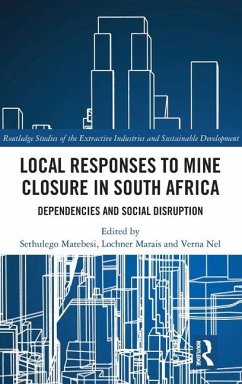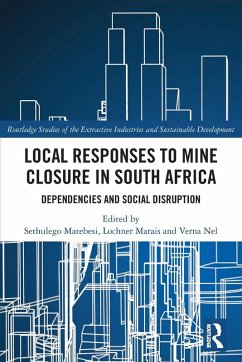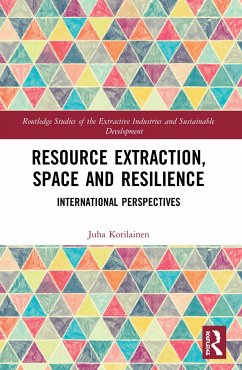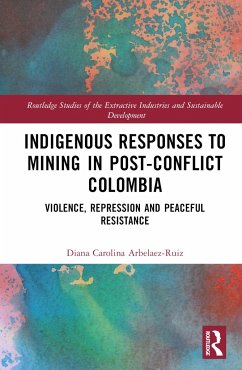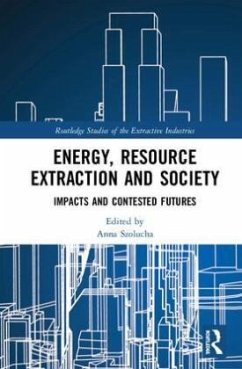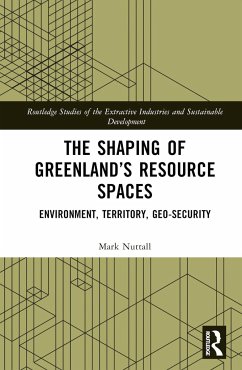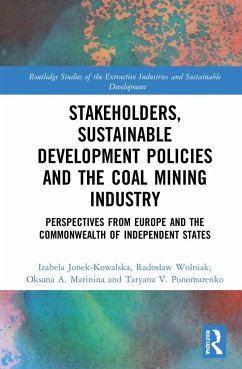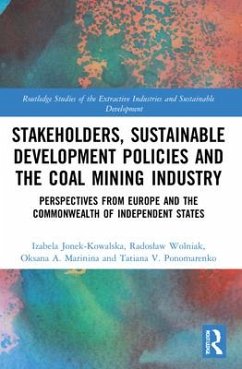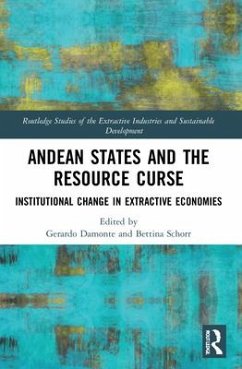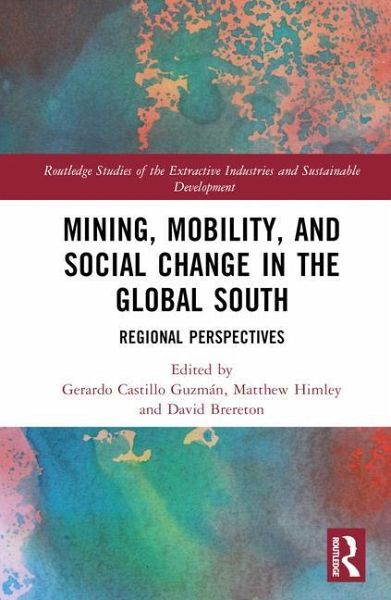
Mining, Mobility, and Social Change in the Global South
Regional Perspectives
Herausgegeben: Guzmán, Gerardo Castillo; Himley, Matthew; Brereton, David
Versandkostenfrei!
Versandfertig in 6-10 Tagen
154,99 €
inkl. MwSt.
Weitere Ausgaben:

PAYBACK Punkte
77 °P sammeln!
This volume focuses on how, why, under what conditions, and with what effects people move across space in relation to mining, asking how a focus on spatial mobility can aid scholars and policymakers in understanding the complex relation between mining and social change.This collection centers the concept of mobility to address the diversity of mining-related population movements as well as the agency of people engaged in these movements. This volume opens by introducing both the historical context and conceptual tools for analyzing the mining-mobility nexus, followed by case study chapters foc...
This volume focuses on how, why, under what conditions, and with what effects people move across space in relation to mining, asking how a focus on spatial mobility can aid scholars and policymakers in understanding the complex relation between mining and social change.
This collection centers the concept of mobility to address the diversity of mining-related population movements as well as the agency of people engaged in these movements. This volume opens by introducing both the historical context and conceptual tools for analyzing the mining-mobility nexus, followed by case study chapters focusing on three regions with significant histories of mineral extraction and where mining currently plays an important role in socio-economic life: the Andes, Central and West Africa, and Melanesia. Written by authors with expertise in diverse fields, including anthropology, development studies, geography, and history, case study chapters address areas of both large- and smallscale mining. They explore the historical-geographical factors shaping mining-related mobilities, the meanings people attach to these movements, and the relations between people's mobility practices and the flows of other things put in motion by mining, including capital, ideas, technologies, and toxic contamination. The result is an important volume that provides fresh insights into the social geographies and spatial politics of extraction.
This book will be of great interest to students and scholars of mining and the extractive industries, spatial politics and geography, mobility and migration, development, and the social and environmental dimensions of natural resources more generally.
Chapter 6 of this book is freely available as a downloadable Open Access PDF at http://www.taylorfrancis.com under a Creative Commons [Attribution-Non Commercial-No Derivatives (CC-BY-NC-ND)] 4.0 license
This collection centers the concept of mobility to address the diversity of mining-related population movements as well as the agency of people engaged in these movements. This volume opens by introducing both the historical context and conceptual tools for analyzing the mining-mobility nexus, followed by case study chapters focusing on three regions with significant histories of mineral extraction and where mining currently plays an important role in socio-economic life: the Andes, Central and West Africa, and Melanesia. Written by authors with expertise in diverse fields, including anthropology, development studies, geography, and history, case study chapters address areas of both large- and smallscale mining. They explore the historical-geographical factors shaping mining-related mobilities, the meanings people attach to these movements, and the relations between people's mobility practices and the flows of other things put in motion by mining, including capital, ideas, technologies, and toxic contamination. The result is an important volume that provides fresh insights into the social geographies and spatial politics of extraction.
This book will be of great interest to students and scholars of mining and the extractive industries, spatial politics and geography, mobility and migration, development, and the social and environmental dimensions of natural resources more generally.
Chapter 6 of this book is freely available as a downloadable Open Access PDF at http://www.taylorfrancis.com under a Creative Commons [Attribution-Non Commercial-No Derivatives (CC-BY-NC-ND)] 4.0 license





